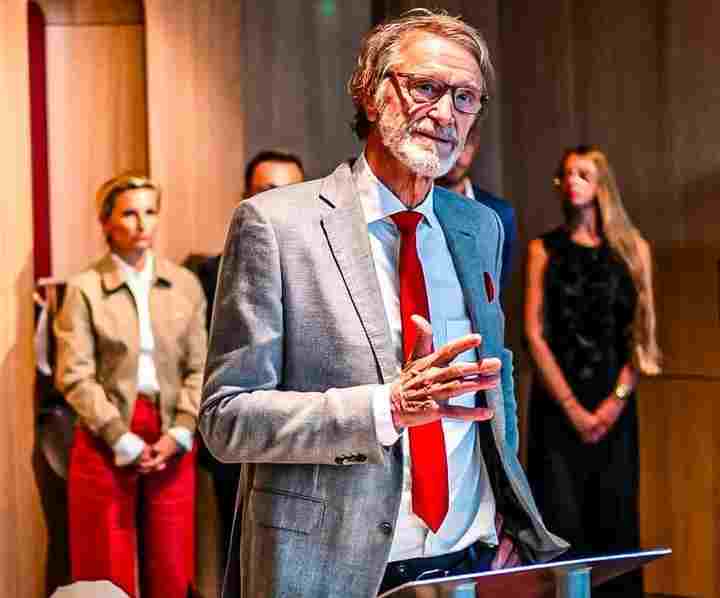Ratcliffe draws parallels between United’s troubles and the shaky early years of Ferguson and Arteta, calling for patience and long‑term vision
Sir Jim Ratcliffe, Manchester United’s co‑owner, has defended the club’s current trajectory by comparing the struggles at Old Trafford to the early, turbulent years of two of modern football’s most scrutinized managerial reigns: Sir Alex Ferguson’s nascent period at United and Mikel Arteta’s formative seasons at Arsenal. Ratcliffe argues that though pressure and criticism are inevitable in elite football, success cannot be demanded overnight — and he maintains that United must commit to a long view rather than react to short‑term turbulence.
—
The comparisons: Ferguson and Arteta
In his commentary, Ratcliffe recalled how Sir Alex Ferguson’s first two seasons at Manchester United were met with severe criticism and calls for his dismissal — a sentiment often repeated in retrospectives about that era. He drew a line from those fraught early days to United’s present challenges, suggesting that what now looks like failure soon becomes foundational when managed thoughtfully.
He also invoked Mikel Arteta’s early years at Arsenal: a period criticized and doubted by many but ultimately yielding steady progress and success. Ratcliffe pointed out that Arteta “had a miserable time for the first couple of years,” underscoring that managerial transitions often require extended gestation before the work begins to bear fruit.
By aligning United’s present discomfort with those familiar stories, Ratcliffe is asking fans, pundits, and stakeholders to resist the bandwagon of instant condemnation and instead allow space for a rebuilding process that unfolds over time.
—
Results matter — but in the long term
Ratcliffe made clear that he does not dismiss the importance of results, stating that “we are ultimately driven by results.” But he emphasized that success cannot be measured week to week: “we have to be patient and look at the results in the long term.”
That distinction — between immediate reaction and sustained evaluation — lies at the heart of his defense. In a footballing culture increasingly prone to snap decisions, Ratcliffe is arguing against the “light switch” mentality: the notion that great change can or should happen instantly.
He noted that United has “lots of good things” already in place, but cautioned that turning those positives into consistent performance is not a matter of pressing a button. The implication is that structural reforms, squad evolution, cultural reinforcement, and strategic investments all take time — and that patience is a necessary virtue in this stage.
—
Endorsing Amorim — for three years
As part of his defense of the club’s direction, Ratcliffe has affirmed his confidence in current manager Ruben Amorim. Despite mounting pressure and a rocky run of results, Ratcliffe insists that Amorim deserves the full duration of his contract — three years — to validate his philosophy and develop the team.
In his remarks, Ratcliffe posed an implicit challenge to critics who demand early reactions: if a coach is hired with a multi-year mandate, to judge him prematurely is to undermine the very logic of long-term planning.
—
Acknowledging mistakes, stressing continuity
Ratcliffe also admitted that United has made mistakes along the way, acknowledging “errors … as we’ve gone along.” But rather than letting those missteps justify panic or abrupt change, he frames them as part of a necessary learning curve in the course of transformation.
He reinforced the notion that restructuring and reform are underway: from financial rebalancing to operational changes to squad building. In that context, what some see as chaos, Ratcliffe presents as intentional — albeit messy — reshaping.
He repeatedly rejected any notion that the Glazer ownership would override his decisions on the sporting front. In his view, United’s future must be guided by a coherent, steady hand — not by vacillating reactions to pressure.
—
Risks in the argument
While Ratcliffe’s stance is moral and strategic, it is not without risk.
Patience has limits
Fans, media, and investors can only tolerate underperformance so long. Even the strongest case for long-term planning can wear thin if results do not gradually improve.
Comparisons can backfire
Holding up Ferguson’s early years or Arteta’s trajectory as models can invite scrutiny on whether circumstances are truly comparable. The context of each club, the resources available, league dynamics, and expectations differ.
Trust must be rebuilt
Many United supporters have grown disillusioned by years of underachievement. For Ratcliffe’s patience argument to succeed, tangible signs of positive change must emerge — from recruitment to culture to results.
Accountability must follow patience
A promise of time does not absolve accountability. If after the three‑year mark the team has regressed or stagnated, the longer leash can be perceived as an excuse rather than a strategy.
—
Why the analogy matters
Ratcliffe’s invocation of Ferguson and Arteta is ambitious, and purposeful. He is setting a narrative frame: United’s rebuilding is not chaos, but potential. He is signaling to the club’s internal structures (players, staff, executives) and to external observers that the expectation should shift from instantaneous success to calculated growth.
The comparison also places pressure on all parties to think strategically. Just as Ferguson and Arteta’s formative eras involved stabilizing foundations (youth development, identity, recruitment philosophy), Ratcliffe is implicitly calling for United to do the same — even if it means accepting short-term pain.
—
Conclusion
In sum, Sir Jim Ratcliffe is urging patience, reason, and a long-view leadership approach amid turbulence at Manchester United. By likening the club’s struggles to those encountered during the early reigns of Sir Alex Ferguson and Mikel Arteta, he’s distancing himself from short-term panic and instead making a case for continuity, strategic clarity, and time. The message is clear: United must be judged not week by week, but on progress over seasons — and that kind of transformation requires more than flipping a switch.












Leave a Reply